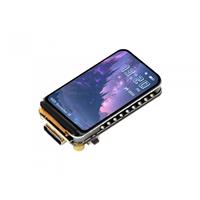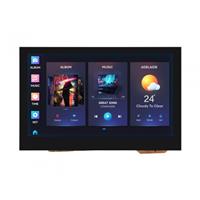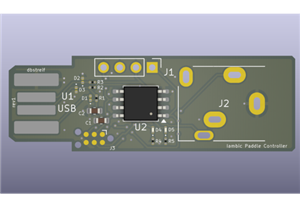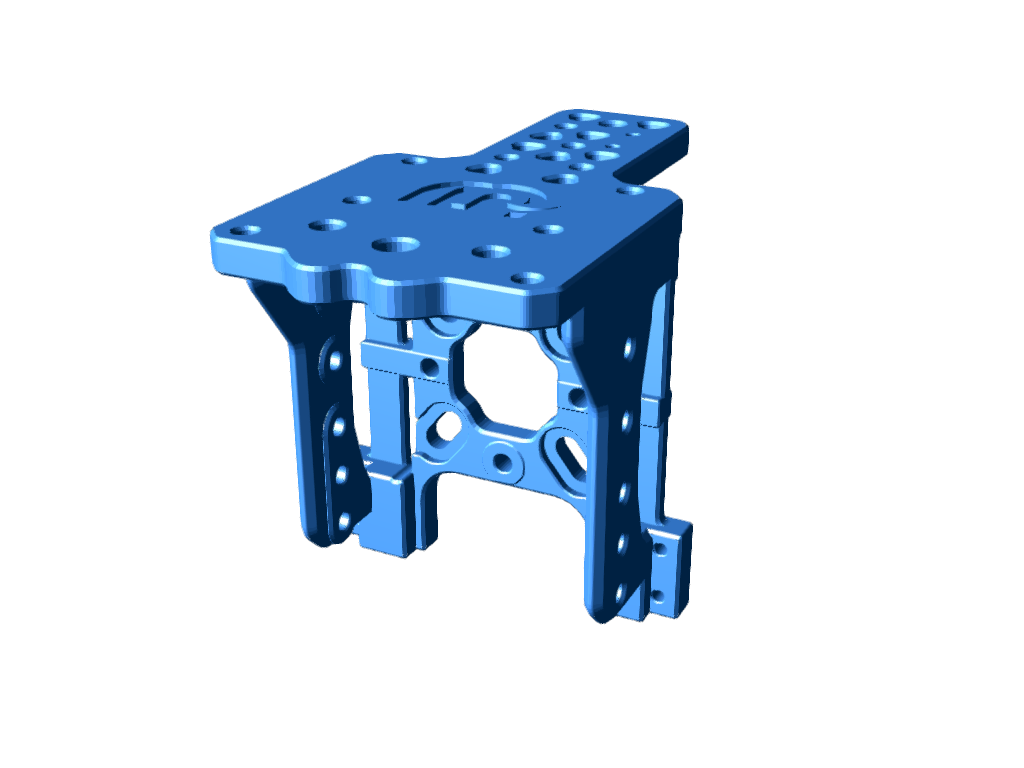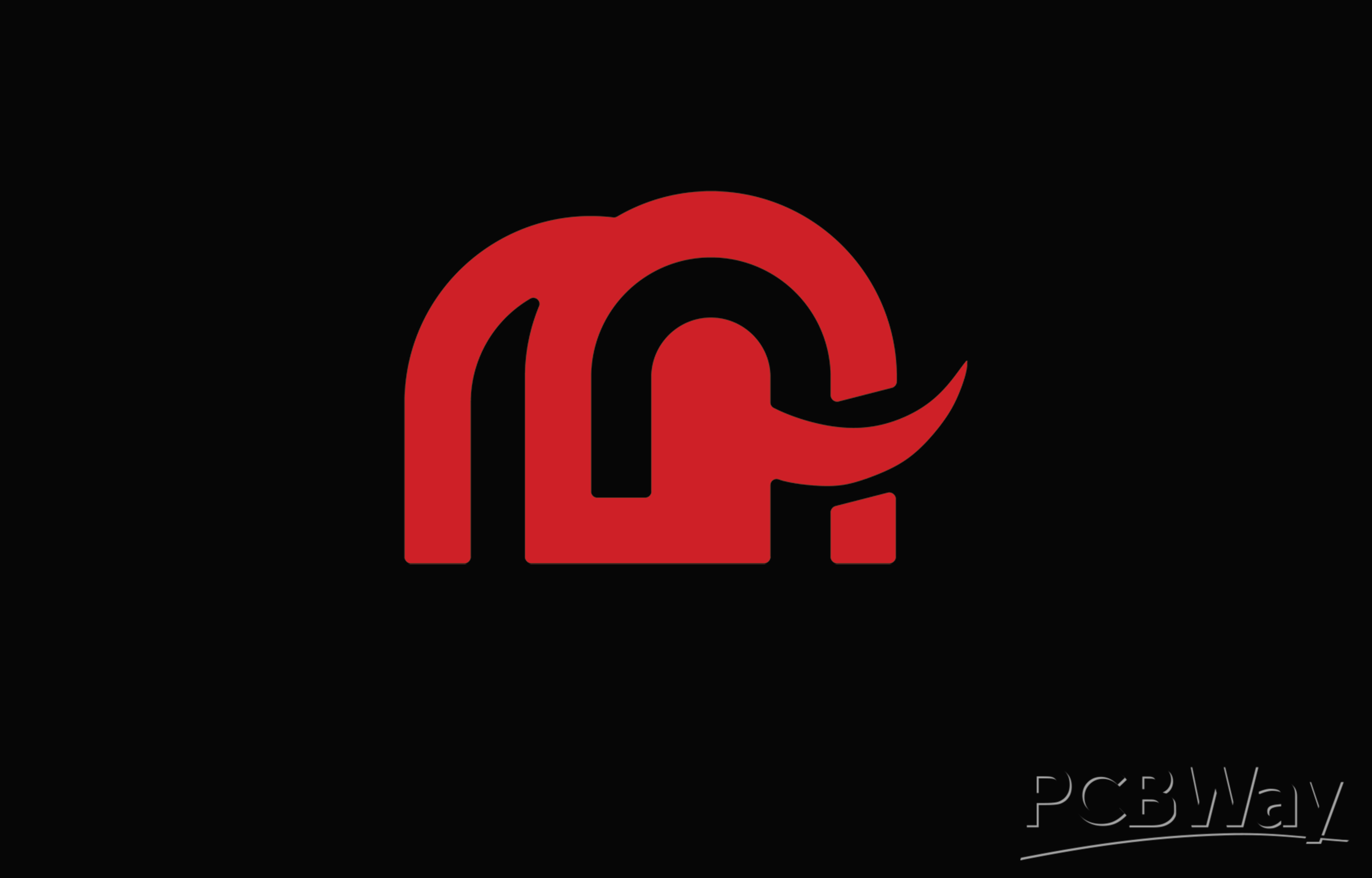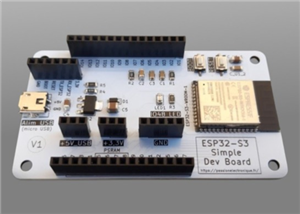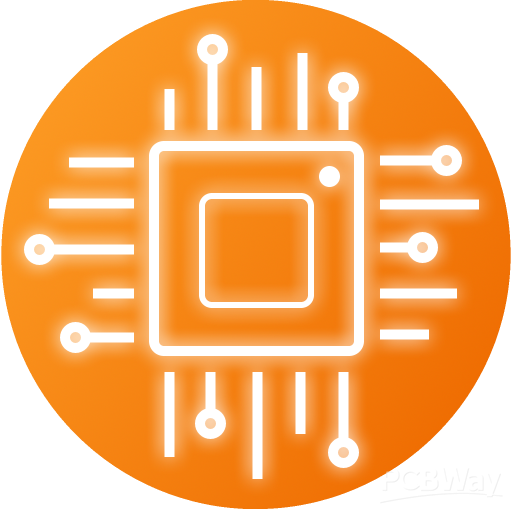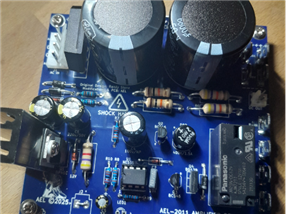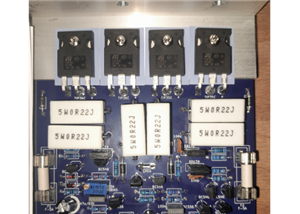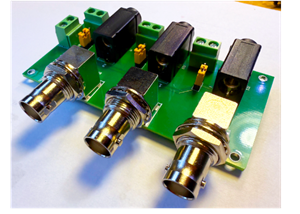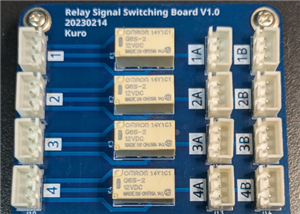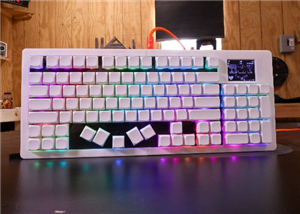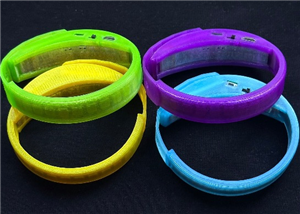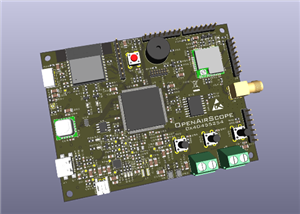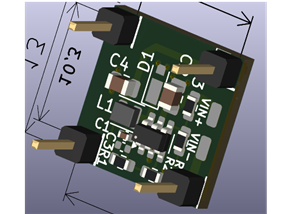OpenLCB / LCC IO Board for Nucleo-64
### Overview
This project is an IO board for controlling model railroad layouts. It drives model railroad peripherals such as turnouts, signals, pushbuttons, block detectors, etc, and uses the NMRA standard LCC connection via CAN-bus to control and interact with other peripherals or a computer.
The IO board does not contain a microcontroller. It needs an STM32 Nucleo-64 board plugged into it to operate. The following boards are tested:
- Nucleo-F091RC with 256K flash and 32K ram
- Nucleo-F303RE with 512K flash and 80K ram
Designed for, but untested with
- Nucleo-F446RE
- Nucleo-F767ZI with 2M flash, 512K ram and ethernet (this is larger and needs modification).
### DESCRIPTION
This is a dev kit based on the STM32 Nucleo processor board, which is inexpensive, and compatible with both Arduino libraries as well as OpenMRN. The processor boards come with various chips, and a number of them have plenty of flash and RAM available for advanced functionality -- 256K to 2M of flash and 32K to 512K of RAM is available in the $11-$24 price range.
I stuffed a number of peripherals onto the Dev Kit, expecting that different users will populate whichever and however many they want from these. The total list is as follows:
- 16 input lines (active low) for buttons or block detectors; screw terminals or 10-pin ribbon cable (selectable).
- 8 lines for driving 4 tortoises, 8 medium-current 12V outputs, or 8 high-current 12V outputs (depending on driver chip populated). Screw terminals or ribbon cable.
- 16 additional output lines with four different options:
* direct LED drive at 5V with slots for current limiting resistors (both CA and CC supported)
* high current low-side switch for snap switches, structure lighting, or CA LEDs (multiple series LEDs supported)
* high-current high-side switch for snap switches, structure lighting, or CC LEDs (multiple series LEDs also supported)
* very high-current low-side switches for... not sure what -- but these are harder to solder.
- 8 servos driven directly from the board; up to 2 amps of 5V rail available for the servos
- expansion ports for I2C and SPI daughterboards. As an example, this board can be wired to it to add an additional 32 I/O lines (bi-directional/selectable). But boards based on the PCA9285 can be added to drive 16 servos each, etc.
The OpenLCB related features are as follows:
- CAN-bus port (of course)
- Local power supply input via jack or screw terminals
- Supply power to the bus, local supply, or take power from the bus -- jumper selectable. With proper jumper setting no automatic switchover happens so no brownout of the bus in case the barrel jack comes loose.
- DCDC switcher to convert from bus voltage to 5V; 500mA or 2A capacity.
All the IO chips are through hole and can be made socketed; thus replacing faulty or damaged components is possible for $0.4 instead of tossing the whole board. Building the board with average soldering skills is possible if somebody wants to save on costs.
### TECHNICAL DETAILS / COMPONENTS
This pre-compiled basket contains the components needed for 5 boards fully populated with all alternatives:
http://www.digikey.com/short/jm34c7
Depending on the desired population, some of the alternatives should be removed from the basket before ordering!
Almost all components are available in through-hole form. Some components can be populated either via through-hole or via SMD alternatives. Make sure you adjust the purchase basket accordingly.
### LEARN / TOPIC / BUILD INSTRUCTIONS
More info: https://sites.google.com/site/balazsracz/nucleo-io-board
Schematic: https://drive.google.com/file/d/1Ak-stx7NbY1LWwHgUYtzf3kkMfKB_b9X/view
OpenLCB / LCC IO Board for Nucleo-64
*PCBWay community is a sharing platform. We are not responsible for any design issues and parameter issues (board thickness, surface finish, etc.) you choose.
- Comments(0)
- Likes(16)
-
 Krzysztof Szwaba
Mar 17,2024
Krzysztof Szwaba
Mar 17,2024
-
 thanhviet
Jan 21,2024
thanhviet
Jan 21,2024
-
 Evili del Rio i Silvan
Jun 12,2020
Evili del Rio i Silvan
Jun 12,2020
-
 rzwartus
Dec 22,2019
rzwartus
Dec 22,2019
-
 Robert J Wilson
Jul 14,2019
Robert J Wilson
Jul 14,2019
-
 Hysam Rashed
Jun 23,2019
Hysam Rashed
Jun 23,2019
-
 drdpharris
Jun 14,2019
drdpharris
Jun 14,2019
-
 Dave
Sep 27,2018
Dave
Sep 27,2018
-
 Kenny Long
Sep 05,2018
Kenny Long
Sep 05,2018
-
 Rick Lull
Aug 18,2018
Rick Lull
Aug 18,2018
-
 Dakota Szabo
Jun 18,2018
Dakota Szabo
Jun 18,2018
-
 Balazs Racz
May 21,2018
Balazs Racz
May 21,2018
-
 Engineer
May 21,2018
Engineer
May 21,2018
-
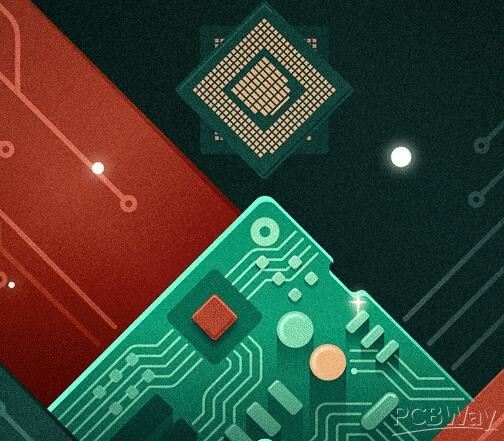 Guang Ning
May 18,2018
Guang Ning
May 18,2018
-
 Engineer
May 16,2018
Engineer
May 16,2018
-
 Engineer
May 12,2018
Engineer
May 12,2018
- 5 USER VOTES
- YOUR VOTE 0.00 0.00
- 1
- 2
- 3
- 4
- 5
- 6
- 7
- 8
- 9
- 10
- 1
- 2
- 3
- 4
- 5
- 6
- 7
- 8
- 9
- 10
- 1
- 2
- 3
- 4
- 5
- 6
- 7
- 8
- 9
- 10
- 1
- 2
- 3
- 4
- 5
- 6
- 7
- 8
- 9
- 10
-
8design
-
9usability
-
10creativity
-
10content
-
10design
-
10usability
-
10creativity
-
10content

-
9design
-
8usability
-
9creativity
-
8content

-
8design
-
9usability
-
8creativity
-
8content
-
10design
-
10usability
-
10creativity
-
10content
 More by Balazs Racz
More by Balazs Racz
-
-
mammoth-3D SLM Voron Toolhead – Manual Drill & Tap Edition
136 0 0 -
-
AEL-2011 Power Supply Module
643 0 2 -
AEL-2011 50W Power Amplifier
560 0 2 -
-
-
Custom Mechanical Keyboard
762 0 0 -
Tester for Touch Screen Digitizer without using microcontroller
392 2 2 -
Audio reactive glow LED wristband/bracelet with NFC / RFID-Tags
361 0 1 -
-







 Top
Top










